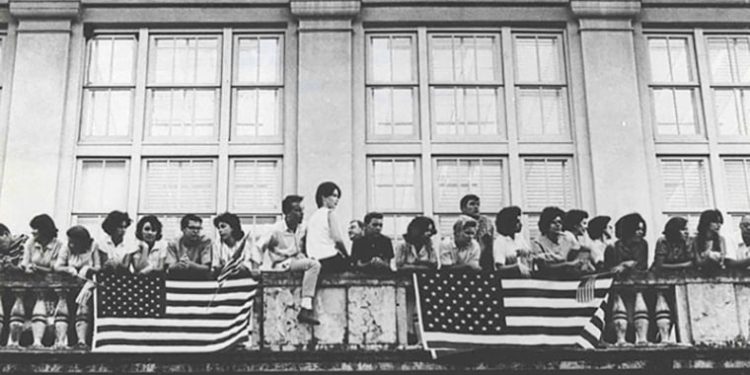Panama’s control of the canal that bears its name should not be returned to the United States despite calls from President Donald Trump to “we’ll take it back,” Panamanians say.
Although most people thought the issue was closed when Panama officially took control of the United States’ canal operations in 1999, the issue reared its head during his campaign when he suggested that the wonder of he engineering that connects the Atlantic and Pacific oceans was run by China and should return to American control.
Trump repeated that assertion in his inaugural address this week, saying, “China is running the Panama Canal” and “We’re taking it back.” Secretary of State Marco Rubio will visit Panama during a Latin American and Caribbean tour that begins late next week.
Speaking at the World Economic Forum in Davos, Switzerland, Panama’s President Jose Raul Mulino rejected the notion as he and other Panamanian leaders tried to drum up international support this week for keeping the channel under the authority of their nation.
Among those leaders is Jorge Luis Quijano, a former canal administrator, who insists that Panamanians run the waterway, not the Chinese. He also disputed Trump’s complaint that U.S. ships pay more to pass through the canal than other countries.
“A ship with a Panamanian flag pays as much as a ship with an American flag,” Quijano said, adding that rates are based on the size of a ship, and large container ships can pay up to 1.2 million dollars to go through the 51-mile waterway that crosses the Isthmus of Panama.
Quijano said he began working at the canal in 1975 after graduating as an engineer from Lamar University in Beaumont, Texas, when the United States still controlled it. He said the Americans were the supervisors when he started, but the Panamanians eventually became the managers and “the Americans retired.”
“I saw the whole movie,” Quijano said, joking about witnessing the transition over the 44 years he worked at the canal, eventually becoming vice president of operations and leading a rebuilding effort that expanded the chain capacity in 2016.
Humberto Arcia, 72, who lived two kilometers from the canal in the Chorrillo neighborhood as a child, said he would never forget the price Panamanians paid for the right to manage the canal in their own country.
The Hay-Bunau-Varilla Treaty signed in 1903 gave the United States the right to build and manage the Panama Canal. Construction began in 1904 after a failed attempt by a French construction team to build the ambitious passage.
The massive project took the lives of more than 5,000 construction workers, including 350 American citizens, until its completion in 1914. Most of the workers were from Caribbean nations.
Panama’s relationship with the United States has been marked by riots and protests opposing American participation in the Central American nation’s affairs and control of the canal.
In 1964, anti-American riots broke out in Panama because the Panamanian flag was not allowed to fly next to the American flag at Balboa High School in the US-controlled Canal Zone which was frequented by American students, according to the American National Archives. The Canal Zone was a 10-mile concession from the United States where canal employees and their families lived.
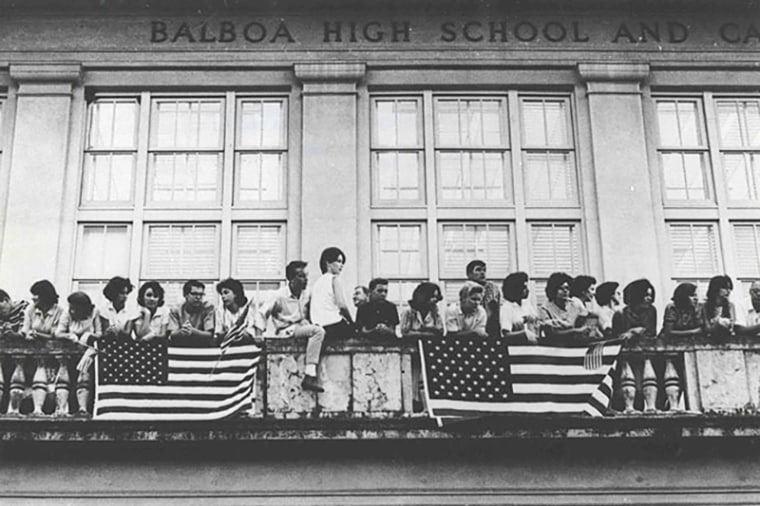
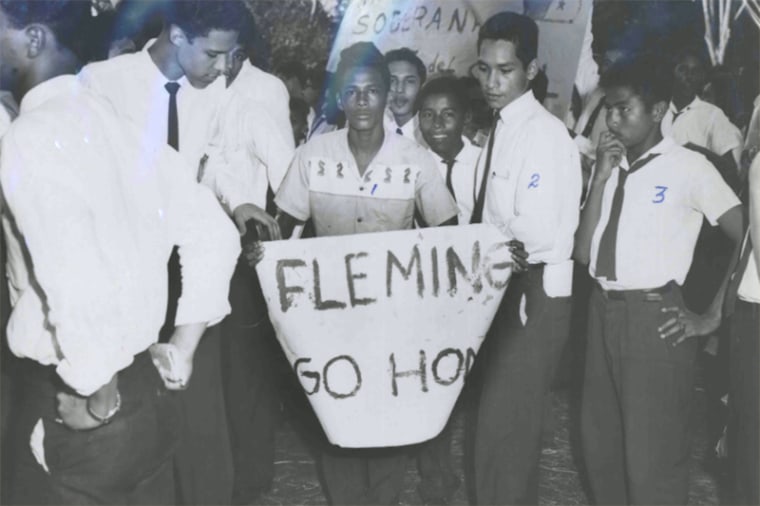
Protests intensified and students from several high schools outside the Canal Zone marched toward its entrance, where at least 20 people were killed in clashes with the U.S. military, National Guard and area police. of the canal For three days of riots. The protests are commemorated each year on January 9, a national holiday, known as Martyrs’ Day.
Arcia, a retired banker and lawyer, remembers hearing students’ relatives talk about their loss when he lived near the canal. “Their suffering changed their families’ lives forever,” he said.
The riots were a turning point in Panama’s history, but it wasn’t until 1977 that President Jimmy Carter and Panamanian military leader Omar Torrijos signed the Torrijos-Carter Treaty that would eventually lead to Panamanian surveillance .
The Panama Canal Authority took full control on December 31, 1999.
American historian David McCullough wrote in his book “The Path Between the Seas”: “The fifty miles between the oceans were among the hardest ever gained by human effort and ingenuity, and no statistics on tonnage or The tolls cannot begin to convey the greatness of what has been accomplished. The channel is primarily an expression of this desire and noble desire to bridge the gap, to bring people together. It is a work of civilization. »
The Panama Canal was named one of the Seven Wonders of the Modern World in 1994.
Today, the canal is one of the most important trade routes in the United States and the main source of revenue for Panama. The canal generates more than $5 billion in annual revenue for the country’s coffers, according to the U.S. State Department.
The ships that pass through generate revenue, but the canal also attracts businesses that create jobs in sectors such as logistics, insurance and banking, according to the Panama Canal Authority (ACP).
Panamanians said the canal was part of their national identity.
Panamanian business consultant Marjorie Miller said her great-grandfather, John Miller, moved to Panama from Jamaica to work on the canal. U.S. Census Bureau records show he lived in the American labor camp known as Tank Red with other canal workers.
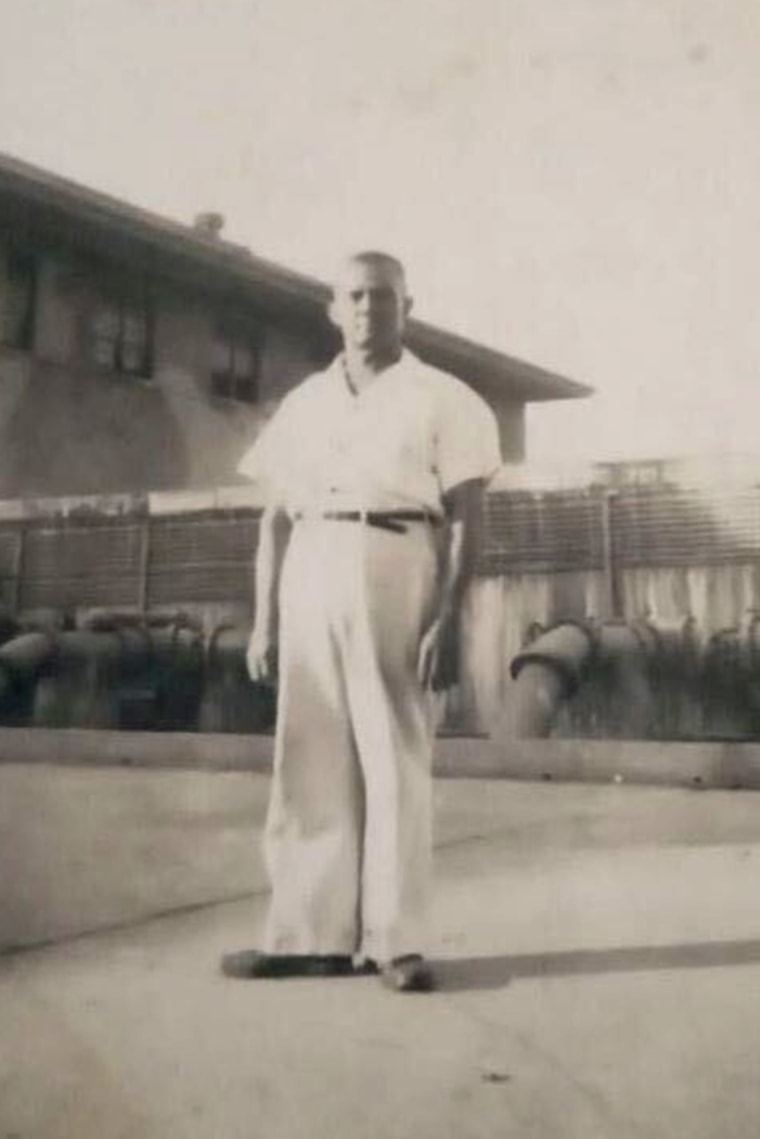
“I always knew how important the canal was to our country because of my ancestors,” she said. “The Panama Canal is Panama. This is our greatest asset.
Miller said she was frustrated by comments Panamanians posted on social media about how the United States could probably do a better job running the canal than Panama.
“The comments come from ignorance,” she said, adding that many young people in her country lack the historical knowledge to understand the importance of the country’s canal.
Miller also said that Trump’s comments about China’s involvement in canal operations may be overshadowed because Panama severed diplomatic relations with Taiwan in 2017 and instead established ties with China.
“We were friends once, and now we hear, ‘We want your channel,’” she said. “It’s a big change when the United States is our largest trading partner.”
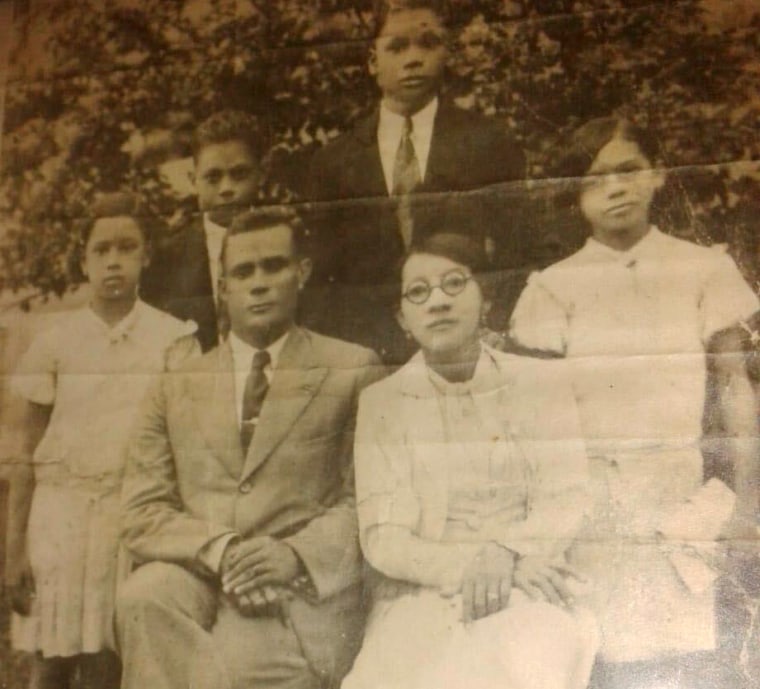
A Chinese Foreign Ministry spokesperson, Mao Ning, said during a news briefing Wednesday that Trump’s comments on China and the canal were baseless.
“Panama’s sovereignty and independence are non-negotiable, and the Panama Canal is not under direct or indirect control by any power,” Ning said. “China does not participate in the management or operation of the canal. China has never interfered. We respect Panama’s sovereignty over the canal and recognize it as a permanent international waterway. »
Quijano, the former vice president of operations, said he doubted the United States could easily manage the canal because it takes 12 years of training for an engineer to learn the complicated system of locks and elevators of water that carry giant ships through the canal.
“If he thinks he’s going to take it back and then we’re going to run it for him, the answer is no,” he said. “We all need to respect treaties and the sovereignty of nations.”
Arcia, who grew up near the canal, said Trump needed to change his tone toward Panama: “What we still want is a beautiful relationship of equality, not submission.”

